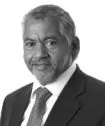14 years after the promulgation of the Electricity and Water Codes (Codes), several decrees have been adopted in Congo-Brazzaville, which include arrangements for the delegation of public service management in the electricity and water sectors, charging methodologies, and the methods of water use in the public domain for energy purposes.
The three main delegation contracts envisaged by the Codes are concession, leasing and interested management. The important issues that these contracts would typically deal with include the following:
- exclusive right of exploitation;
- authorisation of occupation and use of the public domain;
- user fees;
- duration of the contract;
- transferability of rights and obligations;
- recourse to subcontracting;
- exercise by the administration of its power of unilateral modification; and
- absence of tacit or automatic renewal.
Ownership of the equipment (and other assets) necessary for the operation of the delegated public service is organised according to the distinction between returnable assets and property of recovery. However, it is up to the parties to agree on their terms of surrender and redemption of the equipment (and other assets) at the end of the term of the contract.
The delegation contract is awarded based on a call for tenders. However, the Prime Minster may, after consideration of a reasoned report by the responsible Minister, authorise that a specific candidate be appointed through direct negotiation to develop new production or distribution capacities of electricity or potable water. The studies and research of the project must be financed by such candidate and validated by an inter-ministerial commission prior to its implementation.
We note that the Codes make no reference to the special authorisation of the General Directorate for Controlling Public Contracts (DGCMP). However, such authorisation may be required in terms of the Public Procurement Code (Article 71 et seq.). The Central African Electricity Market Code requires delegations to be placed in accordance with the national rules for awarding contracts and public contracts (Article 29) – accordingly, it would seem prudent to involve the DGCMP where there are deviations from the standard procurement procedures.
Lastly, the regimes of independent production and self-generation of electricity are specified Codes. Conversely, the conditions for the self-production of water for personal use provided for in the Codes (Article 76) have yet to be determined, although water capture rights are now regulated (decree no. 2017-255).
Dentons takes this opportunity to thank Olivier Bustin, PhD, French and Portuguese qualified attorney, Vieira de Almeida & Associados for his contribution to this month's newsletter.
About Dentons
Dentons is the world's first polycentric global law firm. A top 20 firm on the Acritas 2015 Global Elite Brand Index, the Firm is committed to challenging the status quo in delivering consistent and uncompromising quality and value in new and inventive ways. Driven to provide clients a competitive edge, and connected to the communities where its clients want to do business, Dentons knows that understanding local cultures is crucial to successfully completing a deal, resolving a dispute or solving a business challenge. Now the world's largest law firm, Dentons' global team builds agile, tailored solutions to meet the local, national and global needs of private and public clients of any size in more than 125 locations serving 50-plus countries. www.dentons.com.
The content of this article is intended to provide a general guide to the subject matter. Specialist advice should be sought about your specific circumstances.


